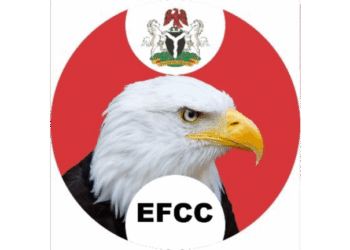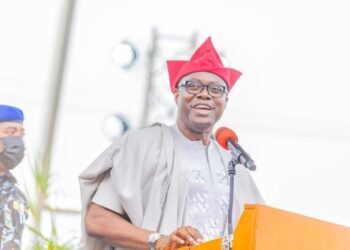The Nigerian National Petroleum Company Limited (NNPC Ltd.) has attributed the current fuel queues in the FCT and some parts of the country to the disruption of ship-to-ship (STS) transfer of Premium Motor Spirit (PMS), also known as petrol.
Mr Olufemi Soneye, Chief Corporate Communications Officer, NNPC Ltd., while reacting to the development on Monday said that the ship-to-ship (STS) transfer was between Mother Vessels and Daughter Vessels resulting from recent thunderstorms.
Soneye also said the adverse weather condition also affected berthing at jetties, truck load-outs and transportation of products to filling stations, causing a disruption in station supply logistics.
“The NNPC Ltd. states that due to flammability of petroleum products and in compliance with the Nigerian Meteorological Agency (NIMET) regulations, it was impossible to load petrol during rainstorms and lightning.
“Adherence to these regulations is mandatory as any deviation could pose severe danger to the trucks, filling stations and human lives.
“Similarly, the development was compounded by consequential flooding of truck routes which has constrained movement of PMS from the coastal corridors to the Federal Capital, Abuja.
“The NNPC Ltd. is working with relevant stakeholders to resolve the logistics challenges and restore seamless supply of petrol to affected areas.
“Already, loading has commenced in areas where these challenges have subsided, and we are hoping that the situation will continue to improve in the coming days and full normalcy will restore,” Soneye said.
Soneye, while urging motorists to avoid panic buying, warned fuel stations not to hoard petroleum products.
The News Agency of Nigeria (NAN) reports that in view of the fresh fuel scarcity, many stations were not dispensing the product, thereby causing hardship to motorists while commuters are stranded.
Along Kubwa Road many fuel stations were not dispensing the product except Amassco and NIPCO at Kubwa second gate.
Many fuel stations along Nyanya-Karshi road did not have fuel except NIPCO and AA Rano fuel stations with long queues. (NAN)











